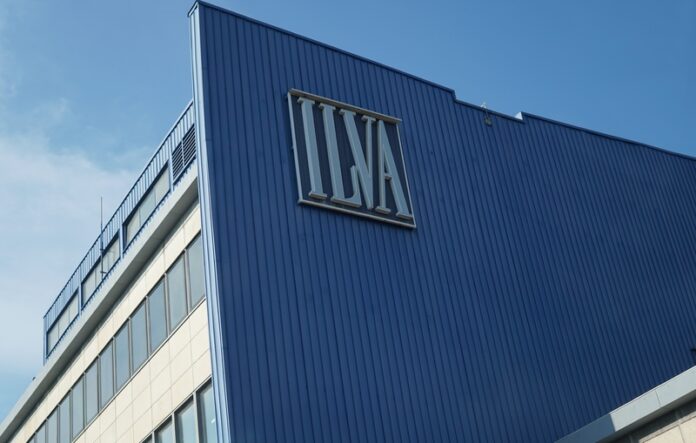On Friday, news broke of the European Union’s positive assessment regarding the “bridge loan” for the former Ilva. The loan amounts to 320 million euros from the Italian government to maintain production while the plant, currently controlled by Acciaierie d’Italia under administration, is sold.
In reality, the European Commission has not provided any formal response but has only ensured that the loan does not constitute state aid (which would violate the competition rules established by Brussels). Now, a decree from the Ministry of Economy will be required to release the funds.
But what does all this mean in practice, and why is the EU involved? Moreover, what is happening in other European countries dealing with polluting plants? TrendSanità discussed this with MEP Rosa D’Amato from Taranto, who highlighted the timely use of the Just Transition Fund, a European fund for economic redevelopment, as the only viable solution.
The health impact of the steelworks
In 2022, the United Nations (UN) classified Taranto as a “sacrifice zone” due to air pollution from the Acciaierie d’Italia (formerly Ilva) plant, linked to high levels of respiratory diseases, heart disease, cancer, neurological disorders and premature mortality. According to the report, prioritising economic interests at the expense of health represents «a stain on humanity’s collective conscience».
The first alarm bells rang in 2011, when an epidemiological study by the Istituto Superiore di Sanità revealed an excess of mortality linked to air pollution in the vicinity of the steel plant, leading the Taranto Public Prosecutor’s Office to an investigation that culminated in the seizure of the hot area.
In 2013, the European Commission opened infringement proceedings against Italy for violations of European directives on air quality and industrial emissions. In the following years, further infringement proceedings followed, while Italian governments issued 14 “save-Ilva” decrees to allow the company to continue its operations.
D’Amato’s work in Europe
The battle for the definitive closure of the former Ilva plant prompted the Taranto-based activist to run for the European Parliament. During her ten years as an MEP (2014-2024), Rosa D’Amato (Greens/ALE Group) denounced the inactivity of national governments through letters and questions to the European Commission, promoted missions of the Environment and Petitions Committees to Taranto, and supported petitions and legal actions by citizens and territorial associations.
The ruling of the European Court of Justice
One of the cases supported by D’Amato was the class action injunction filed by 11 citizens from Taranto, including an eight-year-old boy suffering from a very rare disease (mutation of the sox4 gene), with fewer than 10 known cases worldwide.

In a landmark ruling that is binding across the EU, the European Court of Justice established on 25 June 2024 that if there are serious dangers to the environment and human health, the steelworks must be closed without further delay. It is now up to the Italian authorities to provide the health damage assessments for the issuance of the Integrated Environmental Permit required to keep the plant operational.
For D’Amato, existing health and environmental data is clear and sufficient, including the Regional Environment Agency report of 28 May 2024 identifying the coking plant as the primary source of benzene emissions.
Challenges of the European steel industry
The former Ilva consistently ranks among the most polluting steelworks in the EU, according to data from 2007 to date on annual emissions of CO2 and carcinogenic compounds such as benzene, dioxins and furans published on the European Industrial Emissions Portal.
Besides Ilva, other steelworks in Poland, France and Belgium are amongst Europe’s most polluting. In Germany, historic steelworks in the Rhine River region have reduced emissions through closures or restructuring as part of a transition strategy towards renewable energy sources.
In a landmark ruling that is binding across the EU, the European Court of Justice established that if there are serious dangers to the environment and human health, the steelworks must be closed
German courts have initiated legal actions against more than a dozen cities for insufficient air quality plans. In France, in 2020, the Conseil d’État obliged the French State to pay a fine of EUR 10 million a year for every 6-month delay in implementing concrete actions to reduce air pollution.
In April 2024, the European Parliament approved the revision of directives on air quality and industrial emissions, tightening the maximum pollutant values allowed in the air and bringing them closer to international standards recommended by the World Health Organisation.
The injection of another EUR 320 million
But closing Europe’s largest steelworks, the only one with a complete steel production cycle, and a crucial source of employment in a region already plagued by a lack of economic alternatives, does not generate enthusiasm among various national players, including the trade unions, Confindustria and the government.
On Friday, the Minister of Enterprise and Made in Italy, Adolfo Urso, announced the EU’s positive assessment of a EUR 320 million “bridge loan” to Acciaierie d’Italia under extraordinary administration — with an annual interest rate of 11.6% — to keep the steel plant operational until its sale to one of several multinationals interested in buying it.

Although the European Commission has not adopted a formal decision, Lea Zuber, spokesperson for competition, told TrendSanità: «The Commission has been in close and constructive discussions with the Italian authorities to verify that the loan is granted at market conditions, ensuring that public interventions in favour of companies can be considered free of State aid».
D’Amato criticised the government’s choices: «It is irresponsible that the Meloni government is ready to grant another loan to keep the company running, this just months after diverting another 150 million, initially intended for remediation, towards the maintenance of plants where asbestos was found!».
The hypothesis of ecological redevelopment
One option on the table is the “decarbonisation” of the hot area, supported by the government, region, municipality, Acciaierie d’Italia and Legambiente. This would allow the plant to be reconverted without resorting to importing pre-reduced iron or steel from third countries, which is economically unsustainable for Italy.
In Sweden, innovative projects such as H2 Green Steel and HYBRIT envisage steel production without the use of coal. Green hydrogen, produced by electrolysis of water using electric furnaces, is used for the direct iron reduction, releasing water vapour instead of CO2 and eliminating benzene and dioxin emissions associated with coal combustion.
Green solutions tried elsewhere, such as green hydrogen, are not applicable to Taranto
However, D’Amato, who visited the Swedish steelworks in September 2023 hoping to bring their know-how to Italy, stresses that this solution is not applicable to Taranto: «Experts confirm that it would take 114 km2 to produce hydroelectric power, an area that does not exist in the province. Moreover, only 1,700 employees would have their jobs guaranteed, bringing the other 6,000 into redundancy».
The Just Transition Fund
According to Rosa D’Amato, the right path lies elsewhere, and the European Commission acknowledges it: «The decision to allocate EUR 800 million from the Just Transition Fund to the province of Taranto demonstrates that the Commission is fully aware of the problem».
«The only realistic option for Taranto is to close the plant and initiate an economic conversion of the area using the Just Transition fund»
The Just Transition Fund was designed to finance projects aimed at promoting employment and growth in Europe’s outermost regions during the transition to climate neutrality. D’Amato worked on amendments to the European Parliament’s legislative proposal to ensure that the fund would not be used to support steelworks operations.
«The only realistic option for Taranto is to close the plant and initiate an economic conversion of the area using the Just Transition fund», D’Amato asserts, who commissioned a study with proposals for territorial development. She also warns: «If not used by 2027, this money will be lost forever».
And concludes: «We need a strategic European plan for “green” steel, to decide how much to produce, where, and how» echoing the origins of the European Union as the European Coal and Steel Community.


